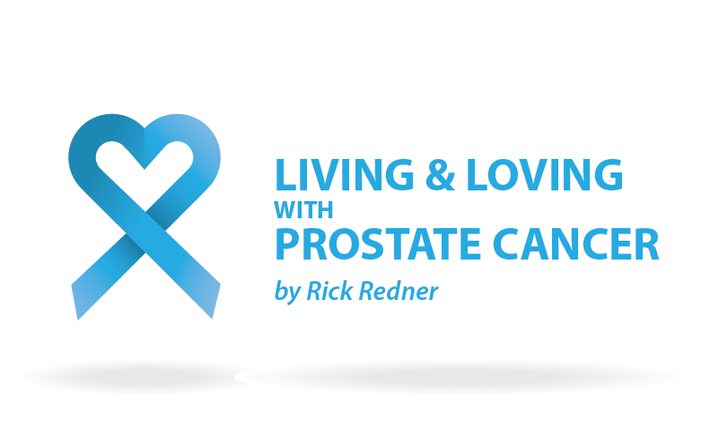In 2001, the way prostate cancer was treated was revolutionized by the introduction of the da Vinci surgical robot.
Men with prostate cancer faced a new dilemma. The robotic procedure was heavily marketed by hospitals and treatment centers with unsubstantiated claims and benefits.
According to a 2011 study by Johns Hopkins Medicine, as many as four in 10 hospital websites were making unsubstantiated claims about the benefits of robotic surgery.
The two prominent quality-of-life issues associated with living without a prostate are the loss of urinary control and the loss of erectile function.
When you read or hear that success rates in these two areas are in the 90% range, it’s highly probable you’re reading hype.
The study found that 164 of 400 hospital robot-surgery websites surveyed “overestimate the benefits of surgical robots, largely ignore the risks, and are strongly influenced by the product’s manufacturer,” according to a Johns Hopkins news release.
How can men evaluate whether they are hearing the truth? Dr. Claus Roehrborn, a professor and chairman of the urology department at University of Texas Southwestern Medical Center in Dallas, told the Australian Financial Review: “A year after a radical prostatectomy 15 percent will still be leaking urine in some way, and among those who experienced full potency before surgery only one in six men resumed sexual activity.”
A UCLA Health post on robotic prostatectomy cites a study from Memorial Sloan Kettering that found that among 11 surgeons performing radical prostatectomy, 12-month sexual potency ranged from 8% to 50%, indicating that there is significant variation in technique and outcomes.
Then, you find studies like the one from the University of California at Urvine, which says, “Our data has shown that among preoperatively potent men aged less than 65 who underwent a nerve-sparing procedure, 89.7% were able to have satisfactory erections at 24 months.”
There are lots of variables that influence the return of potency following a prostatectomy. The skill and experience of your surgeon is an important factor. Your age and sexual functioning before surgery are also important, but there isn’t a predictive variable that’s fool-proof.
I had an experienced surgeon. Before surgery, I completed a pre-surgery sexual history. I began penile rehabilitation before surgery. I was told the chances of my regaining my erectile abilities were more than 90%.
Four years after surgery, nothing — including penile injections — worked. I was told I’d be impotent for the rest of my life. I don’t believe my surgeon lied to me. I believe he overestimated my odds because he believed those odds were true.
Thanks to social media, I’ve spent the last seven years in contact with men and couples struggling with life, love, and sex without a prostate. The most unforgettable and tragic letter came from a widow. Her young husband had his prostate removed. He was cured of cancer but never regained erectile functioning. Too embarrassed to seek help, he began abusing alcohol. Eventually, he committed suicide.
I never stopped wondering if he died of ignorance. When I was told I’d be impotent for the rest of my life, the doctor who told me this never spoke to me about penile implant surgery. The irony is that he was the doctor who performed my implant surgery!
I regret that I never asked him why he didn’t tell me about that option on the day he told me I’d never regain my erectile abilities. This was a devastating loss. I was seriously depressed before I reached the parking lot.
The widow’s letter and the months I spent needlessly hopeless and depressed was the reason my wife and I wrote our award-winning book, “Everything You Never Wanted to Know About Erectile and Penile Implants.”
Based on my experience, I don’t believe giving men the odds of success is helpful. I believe informing a pre-surgery patient that he could experience a complete loss of erectile functioning is more realistic.
I also believe that men who experience the loss of erectile functioning after surgery should receive follow-up with a healthcare professional until it’s known where he landed post-surgery. In some cases, this means some form of follow-up for a minimum of three years.
Men and couples faced with permanent erectile dysfunction need additional supportive services.
In most cases, recovering from robotic surgery takes a few weeks. Recovering from the side effects and quality of life issues brought on by living without a prostate, that takes a lifetime. No one prepares you for this reality before surgery.
***
Note: Prostate Cancer News Today is strictly a news and information website about the disease. It does not provide medical advice, diagnosis, or treatment. This content is not intended to be a substitute for professional medical advice, diagnosis, or treatment. Always seek the advice of your physician or other qualified health provider with any questions you may have regarding a medical condition. Never disregard professional medical advice or delay in seeking it because of something you have read on this website. The opinions expressed in this column are not those of Prostate Cancer News Today, or its parent company, BioNews Services, and are intended to spark discussion about issues pertaining to prostate cancer.



The statistics lie. Therefore DR lie because they quote statistics. I am a Patient Advocate and speak to men’s health groups several times a year about my recovery and our success with the implants. Men who regain 50% or more sexual function after a prostatectomy are the exception. Those like you and me who regain 0 are the norm. Thanks getting the message out. Let me know if I can help in any way
Michael
I’m a recent prostatectomy patient and all of the options including implant surgery were discussed with me by my surgeon. He didn’t sugar coat things. He indicated a real possibility of being impotent after the 1-2 year window. I don’t feel he gave me false hope but some of the treatments post-op I.e. low dose Cialis is a hope providing option. Now it’s a wait and see.No one can predict how the body will react to such invasive measures. I feel they do all they can to save our lives….the rest is left to time, healing and other biological factors.
Read the following book for a comprehensive discussion of less invasive prostate cancer treatment options. With better potency profiles. I found it hugely helpful and accurate.
“AN ABC OF PROSTATE CANCER TODAY Second Edition My Journey over 4 Continents to Find the Best Cure” Alan G. Lawrenson An ABC of Prostate Cancer Today (Kindle Locations 24-31). Alan G Lawrenson. Kindle Edition.
Q: Now that both the 5-year and 10-year clinical data are in on CyberKnife, why would anyone choose to undergo a prostatectomy?
A: They trust their doctor (who is more interesting in reimbursement than patient outcome) and they fail to do even a modicum of research on their own…
http://finance.yahoo.com/news/prospective-multi-institutional-study-shows-110000214.html
http://prostatecancernewstoday.com/2017/09/28/most-low-risk-prostate-cancer-patients-disease-free-10-years-after-cyberknife-therapy-accuray-says/
Randell cyberknife has some very impressive cure rates and when my time comes it will be near the top of my list. There is one issue and that the recent statistics show a 40% potency issue depending on the case etc. If one has only a couple of well defined lesions and a PSA below 6 and potency is a major concern etc I might go with the new TOOCAD system developed in Israel and it just did well in tests at Sloan Kettering. Currently available in Mexico or Israel but soon generally or with HIFU (High Frequency Ultrasound) or focal Cryo with Doctor Duke Bahn in Ventura CA. Each case is different but less radiation is a good thing. I would go with CyberKnife rather than surgery.
For what it’s worth…
My experience is that my urology doc didn’t sugarcoat the potential outcomes, and conversations with numerous survivors and holistic practitioners suggested to me anecdotally that I might try self stimulation as soon and as often as I felt I was up to it, that promoting more frequent blood flow might actually promote more healing.
I had da Vinci surgery 3 1/2 years ago, and within one year I had regained 50% erections and by two years 80%, where I remain today. I am 70 years old now, and have regained most of my sexual potency—enough to have what seems to be a normal level of sexual activity for a man of my age. I credit my doc’s skill, a positive attitude, and maybe—just maybe—my personal effort to promote a return to mostly normal activity.
I was told my my Urologist that all of his patients have erections after the Da Vinci robotic surgery, then he added – every so often about one in 200 men might not. He claimed that the outcome was about 70% of pre-surgery level. HE LIED! that was 7 yrs ago.
I to am a patient advocate and I tell my guys the figures in Australia are that 77% will have no function at 2 yrs and that figure was from Dr Norman Swan and he went on national television to say it. Yet none of the liars (Urologists) will go on national television to speak to their claims… I wonder why??
They should be prosecuted for false and misleading advertising!!
I was lied to.Or in the least misinformed by uninformed Drs.I was told all function would be back in a year.5 years later after the davinchi procedure im worse off than I was before surgery.I should have let it run its course or tried radiation and enjoyed my last few years as my pristate was 75% involved with cancer.
I’m not a patient, but I have had a close family member recently diagnosed. I am disturbed to hear so many men complain they are still alive and free of cancer. Or am I missing something here?
I am disgusted at the slow pace of the FDA to approve the TOOKAD system and other less invasive procedures. It seems to me that the FDA and the AMA are conspiring to maintain the high priced surgery and radiation treatments. Sloan Ketering already said TOOKAD looks fine and Mexico and Europe have approved it. In addition outside of Dr.Sperling in Florida most Docotors have no idea that laser treatment is available. Next why is it hard to get insurance coverage for less invasive procedures? Something is rotten at the FDA and AMA, Finally that are clinical studies showing various natural supplements that may slow down or stop the advance of PSA such as boron. Why is it that few Doctors know anything about the role of diet and supplements? Again not enough money in it?
The BIG lie, “Prostate cancer screening and early detection saves men’s lives”. Let’s do the math: Per the USPSTF (a US government health agency): “A small benefit and known harms from prostate cancer screening” and “Only one man in 1,000 could possibly have a life saving benefit from screening”. However about 1.3 to 3.5 deaths per 1,000 from prostate blind biopsies. Also 5 men in 1000 died and 20.4% had one or more complications within 30 days of a prostatectomy. This does not include deaths and injuries from other procedures, medical mistakes, increased suicide rate, ADT therapy complications, heart attracts, etc, caused by screening and treatments. Does prostate cancer screening put men’s health and lives in danger? YES! Early detection and treatment has killed or destroyed millions of men’s lives worldwide from understated or undisclosed side effects. The man that invented the PSA test, Dr. Richard Ablin now calls it: The Great Prostate Mistake, Hoax and A Profit Driven Public Health Disaster.
https://www.youtube.com/watch?v=tYii98gcejA https://www.uspreventiveservicestaskforce.org/Page/Document/UpdateSummaryFinal/prostate-cancer-screening1
https://medium.com/@drsadeghi/early-detection-disaster-4d4740ee5828 http://www.yananow.org/display_story.php?id=1659
https://urologyweb.com/
https://urologyweb.com/uro-health-blog/ https://grossovertreatment.com https://medium.com/@bvorstman/is-psa-testing-for-prostate-cancer-bad-health-advice-7199618e56c5
https://www.youtube.com/watch?v=0IHE9jdCpn4